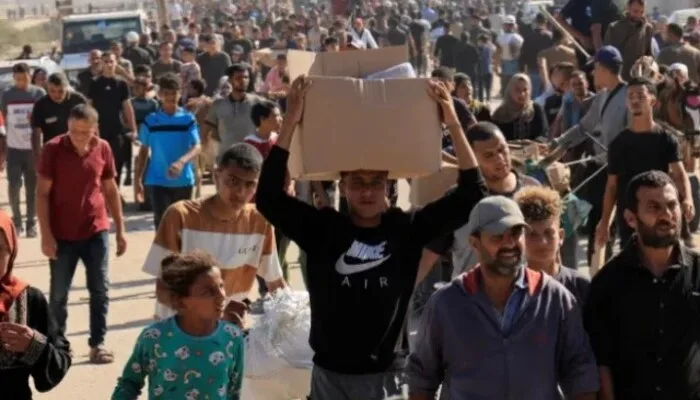Two-state solution, Israel, Palestine, Gaza, Nakba, occupation, apartheid, ethnic cleansing, justice, international law
It began with a promise. A land without people for a people without land. But that was never true.
Palestine was full of life — olive trees, ancient homes, markets, families, and faiths. Muslims, Christians, and Jews lived side by side. They called it home.
Then, in 1948, that home shattered.
The Day the Earth Was Stolen
In May 1948, Israel declared its independence. For many, it was a miracle. For Palestinians, it was the Nakba — the catastrophe.
More than 750,000 Palestinians were expelled from their villages and cities. Soldiers stormed homes. Families ran with nothing but the clothes they wore. In Deir Yassin, over 100 men, women, and children were massacred. That’s not history rewritten — that’s recorded by the International Red Cross and the United Nations.
Over 500 villages disappeared from the map. Erased. Bulldozed. Renamed.
Till today, those families hold keys to homes they’ve never seen again.
The Illusion of Peace
Decades passed. Wars came and went. So did leaders and peace deals. But the pain remained.
Then came the famous phrase:
“Let’s build a two-state solution.”
The idea sounded good. Two countries for two peoples. Borders, flags, and co-existence.
But here’s the truth — Israel never stopped expanding.
Since 1967, Israel has built over 280 illegal settlements in the West Bank, according to the UN and B’Tselem. These settlements house more than 700,000 Israelis. Each one breaks international law under the Fourth Geneva Convention. Yet they continue — with U.S. funding and global silence.
The so-called Palestinian state? A disconnected patchwork. Surrounded by walls. Controlled by Israeli checkpoints. No army. No economy. No airport. No freedom.
That’s not a state. That’s a prison.
Gaza – A Cage of Fire
In 2005, Israel “withdrew” from Gaza. Many celebrated. But Israel didn’t really leave.
It closed the borders. It controlled the air and the sea. It cut off imports, exports, and movement.
Then came war after war.
-
2008–2009: Operation Cast Lead killed over 1,400 Palestinians, mostly civilians.
-
2014: Over 2,200 were killed, including 500 children, in Operation Protective Edge.
-
2023–2024: Bombs turned Gaza into rubble. Hospitals, schools, mosques — all targeted.
Human Rights Watch and Amnesty International have documented these actions as war crimes. Yet the world calls for “restraint” from Palestinians.
What choice does a people have when every form of resistance is crushed?
A State Built on Apartheid
Today, Israel controls all of historic Palestine — from the Jordan River to the Mediterranean Sea. But not all people enjoy the same rights.
Israeli Jews have full citizenship. Palestinians, even those with Israeli IDs, face:
In 2021, Human Rights Watch declared Israel guilty of apartheid. In 2022, Amnesty International followed. Their reports are detailed, factual, and clear.
Apartheid is a crime against humanity under international law. Yet Israel continues. And world leaders still push for two states — knowing full well it won’t fix the system of racial domination.
Read: Pakistan Hit by Massive Credential Leak in Global Cyber Breach
Justice, Not Division
Every time the two-state plan resurfaces, it ignores one truth:
Palestinians don’t just want a flag. They want their rights.
They want:
-
The right to return to their homes
-
The right to live without occupation
-
The right to speak, move, and dream freely
They don’t want to divide what was already theirs.
“Why should we give up our homeland,” says Palestinian activist Ahed Tamimi, “for a system that rewards our oppressors?”
Real peace means equality — not partitions.
It means truth before treaties.
Justice before negotiations.
One State, Equal for All
So what’s the alternative?
A single democratic state. One land. One people. Equal rights — for Muslims, Christians, and Jews.
This is not a fantasy. It’s how South Africa ended apartheid. Nelson Mandela didn’t ask for two states. He asked for one democracy.
The same can happen in Palestine.
It begins by dismantling the walls — physical and legal.
It begins by returning to the truth.
It begins when the world stops pretending that two states can solve a problem built on dispossession.
Don’t Fall for the Slogan
The two-state solution is not a peace plan.
It’s a distraction.
It’s a cover-up.
It’s a clever way to tell Palestinians:
“You’ve lost. Settle for scraps.”
But Palestinians have not lost.
They are still standing. Still resisting. Still dreaming.
And the world is waking up.
People from every corner — students, teachers, artists, athletes — are saying:
“Not in our name.”
They demand more than ceasefires. They demand justice.
The two-state solution dies the moment truth is told.
Justice, equality, and freedom — not maps and negotiations — are what will heal this land.
Sources:
